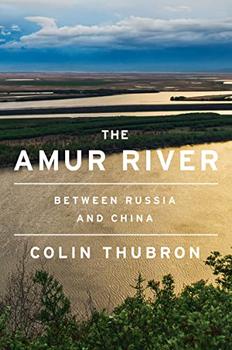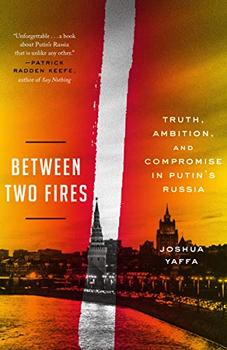Summary | Excerpt | Reviews | Beyond the book | Read-Alikes | Genres & Themes | Author Bio

A dazzling Russian travelogue from the bestselling author of Great Plains
In Travels in Siberia, Ian Frazier trains his eye for unforgettable detail on Siberia, that vast expanse of Asiatic Russia. He explores many aspects of this storied, often grim region, which takes up one-seventh of the land on earth. He writes about the geography, the resources, the native peoples, the history, the forty-below midwinter afternoons, the bugs.
The book brims with Mongols, half-crazed Orthodox archpriests, fur seekers, ambassadors of the czar bound for Peking, tea caravans, German scientists, American prospectors, intrepid English nurses, and prisoners and exiles of every kind - from Natalie Lopukhin, banished by the czarina for copying her dresses; to the noble Decembrist revolutionaries of the 1820s; to the young men and women of the People's Will movement whose fondest hope was to blow up the czar; to those who met still-ungraspable suffering and death in the Siberian camps during Soviet times.
More than just a historical travelogue, Travels in Siberia is also an account of Russia since the end of the Soviet Union and a personal reflection on the all-around amazingness of Russia, a country that still somehow manages to be funny. Siberian travel books have been popular since the thirteenth century, when monks sent by the pope went east to find the Great Khan and wrote about their journeys. Travels in Siberia will take its place as the twenty-first century's indispensable contribution to the genre.
Frazier has crammed an encyclopedic amount of information into this book, but never fails to keep the momentum going. A master of the good yarn, he can tease out the best stories and the most telling anecdotes from his material, whether the focus is on medieval history or escapades with fellow travelers. Many of the tales, facts, and historical tidbits Frazier relates are too good not to share, and readers may find themselves irritating their roommates and domestic partners by constantly poking them and exclaiming, "Listen to this!"..continued
Full Review
 (879 words)
(879 words)
(Reviewed by Jennifer G Wilder).
Ian Frazier encounters a diverse range of Siberian foodstuffs on his journey, from the salmon he helps to catch in the Bering Sea off Chukotka, to the linty sausage he pulls out of his luggage time after time on a long train trip. Here is a sampling of morsels from the culinary landscapes Frazier explores.
Ukha – A brief hop from Alaska, Frazier enjoys his first taste of wild-caught salmon on the other side of the Bering Strait. When the fish start running, there are salmon steaks and a basic fish and potato soup called ukha. Ukha is made all over Siberia with whatever local fish is at hand. Russian soups are legendary; borshch is the more familiar combination of beets and cabbage (often flavored with ...

If you liked Travels in Siberia, try these:

by Colin Thubron
Published 2022
The most admired travel writer of our time - author of Shadow of the Silk Road and To a Mountain in Tibet - recounts an eye-opening, often perilous journey along a little known Far East Asian river that for over a thousand miles forms the highly contested border between Russia and China.

by Joshua Yaffa
Published 2021
From a leading journalist in Moscow and correspondent for The New Yorker, a groundbreaking portrait of modern Russia and the inner struggles of the people who sustain Vladimir Putin's rule.